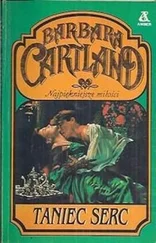He had already, Roxana discovered, a wide knowledge of the Balinese and their customs.
He would sit on deck, whatever the weather was like, poring over one of the books he had brought with him, making notes and then instructing his wife and his niece on dozens, if not hundreds, of things they must do or not do to avoid causing offence to the people among whom they were now to live.
“My head is whirling with so many different taboos and restrictions,” Roxana said to her aunt.
“One of our friends in Holland told us it was ‘a land of taboos’,” Mrs. Helderik replied, “but I expect they exaggerated as people always do and we shall find once we reach there it is very like any other place and no more difficult.”
She spoke a little wearily as if she was finding it hard to echo her husband’s enthusiasm and not to let him realise that she often felt ill and was at all times very lethargic.
Roxana helped her and it was only after they had reached Bali and had settled down in the village where they were to live that Pieter Helderik learnt the truth.
He was then torn in two by elation that after so many prayers he was to have a child and his terror that because of it he might be sent back to Holland.
It was Geertruida, Mrs. Helderik’s maid, who had been with her all her married life and treated her Mistress as if she was a child who needed her care, who solved everything.
“You can leave everything to me, Juffrouw ,” she said to Roxana. “I have delivered many babies in the village where I was born. My mother was the midwife and when she could not attend an expectant mother I went in her place.”
“But after the child is born?” Roxana questioned.
Geertruida smiled.
“There are children everywhere,” she said. “Who would notice one more?”
That was certainly true.
Roxana had never seen so many children or such attractive ones, but she could not help feeling that amongst the Balinese children with their honey-gold skins, a fair-haired Dutch child, if he resembled his father, would stand out like a sore thumb.
But, when Karel was born, she found him so entrancing and so attractive that she knew she would fight for him if it took every ounce of her strength and will!
That she discovered was exactly what she had to do.
Geertruida delivered Karel secretly and apparently efficiently, although she confessed that it was a difficult birth and depleted Agnes Helderik of her strength.
It was, however, Roxana thought, worth all the suffering in the world for that exquisite moment when her aunt gave her son into her husband’s arms.
There was something so reverent and so rapturous in his face that it was as if he knew himself blessed above all mortals and the wonder of his gift from God was beyond words.
As Roxana had gone from the room leaving the husband and wife and their new-born child together, she felt for a moment as if she had been present at the Nativity and half-expected to see the Star of Bethlehem shining in the sky above them.
But their happiness was short-lived.
Mrs. Helderik developed a tropical fever for which Geertruida had no cure and she grew weaker day by day.
Even so Roxana was not really alarmed until one morning she learnt that her aunt had died quietly in the night while they had all been asleep.
There was a smile on her lips and she could not have suffered.
She had in fact slipped away and left Geertruida and Roxana with the month-old Karel on their hands and a husband who was completely broken-hearted.
What made things so difficult was that, while the funeral took place and quite a number of people came to express their condolences, Karel had to be hidden away.
It was not for some months that Roxana realised that in dying her aunt had left a void in the life of her husband that could never be filled.
Because she was so quiet, so gentle and unassuming it had been easy for Roxana, like many other people they knew, to consider Agnes Helderik of little account and certainly of no consequence.
When, against her father’s wishes, she married the man she loved and adored him in a manner that made her completely subservient to his every wish, Agnes had cut herself off completely from the life that she had lived as a girl in England.
She was the daughter of a landowner with a considerable estate, who was well respected in his own County and had a great number of friends in London and her father had expected that both his daughters would make advantageous marriages.
Roxana’s mother had certainly done so in marrying Lord Barclay who, although much older than his wife, was an important figure in the Social world.
That Agnes should have preferred a penniless Dutch Missionary was beyond her father’s comprehension and that of her relatives.
“God knows where she met the man!” her father had expostulated over and over again.
But they had met and fallen in love in a way, Roxana was to learn later, that made it impossible for either of them to be aware that there was anyone else in the whole world.
Agnes had run away with her Dutch Missionary and even her elder sister had thought it regrettable and decided that in future, as they had nothing in common, there would be little point in keeping in close touch with each other.
Only as she grew up had Roxana become intrigued with the idea of her aunt living in Holland, cut off from the world she had known as a girl, but apparently with no regrets.
The family heard from Agnes Helderik at Christmas and on their birthdays, but Roxana suspected that, while her aunt wrote to her sister, her mother was usually too indifferent or too lazy to reply.
When Roxana realised that she must leave her home and go off somewhere, anywhere, to get away from the unfortunate atmosphere that she found it impossible to live in, she had thought of her aunt.
Only one year after Lord Barclay’s death Roxana’s mother had decided to marry again.
It was understandable that she should wish to do so.
At forty she was still a very attractive woman and she had spent the last six years of her life nursing a senile old man who seldom opened his mouth except to complain.
Fortunately they were rich enough to be able to afford nurses, but even so their whole way of life had been restricted and in a way unpleasant.
The moment one entered the front door it was impossible not to be aware that its owner was dying and taking ‘an unconscionable time’ about it.
Roxana had been extremely sorry for her mother. At the same time she found it hard not to be shocked that her mother welcomed flirtatiously any man who was prepared to pay her court.
When finally she told her daughter that she was to marry again, Roxana had waited for the blow to fall and had known even before her mother said who her future husband was to be that it meant she must go away.
“Not Patrick Grenton, Mama!” she had exclaimed involuntarily.
“Why not?” Lady Barclay asked coldly. “You know just as well as I do that he has been devoted to me for a long time and I am sure that we shall be very happy together.”
With difficulty Roxana bit back the protest that came to her lips.
How could she explain to her mother that, while Patrick Grenton had been calling on Lady Barclay and flattering her with his attentions, he had also been pursuing her daughter?
She had disliked Patrick Grenton from the first moment she had seen him.
A hard-riding, hard-drinking country Squire, he had followed her out hunting, keeping away other men who would wish to ride by her side.
In the summer he always managed to turn up unexpectedly in the woods or anywhere else when she happened to be walking or riding alone.
It was some time before she became aware that Patrick Grenton was playing a double game.
Читать дальше












